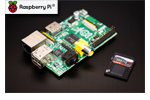 My pal, Bill Lomax, sent me this the other day. On Monday, Google “announced the launch of Computer Science Custom Search, a customized search engine for finding K-12 computer science education (CS)resources. Developed using a collection of over 550 CS education websites, such as Khan Academy, Google CS First, Girl Develop It, Bootstrap, ScratchEd, Code.organd Made with Code to name a few, CS Custom Search connects you to computer science education materials and programs. By focusing on a list of websites that provide primarily free and open K-12 CS education resources, the customized search engine ensures that you will find materials that can be readily adopted for your class, after school program, or enrichment for your child.
My pal, Bill Lomax, sent me this the other day. On Monday, Google “announced the launch of Computer Science Custom Search, a customized search engine for finding K-12 computer science education (CS)resources. Developed using a collection of over 550 CS education websites, such as Khan Academy, Google CS First, Girl Develop It, Bootstrap, ScratchEd, Code.organd Made with Code to name a few, CS Custom Search connects you to computer science education materials and programs. By focusing on a list of websites that provide primarily free and open K-12 CS education resources, the customized search engine ensures that you will find materials that can be readily adopted for your class, after school program, or enrichment for your child.
“CS Custom Search has been designed to support a range of users with varying degrees of experience with CS. For those with extensive experience, CS Custom Search has been optimized to support queries for unique CS topics across a wide range of languages and platforms. For those with less experience, the custom search solution provides recommendations on a range of search topics to ensure that a lack of CS vocabulary doesn’t negatively impact your results.”
—
The URL: http://www.cs4hs.com/resources/cscs.html

